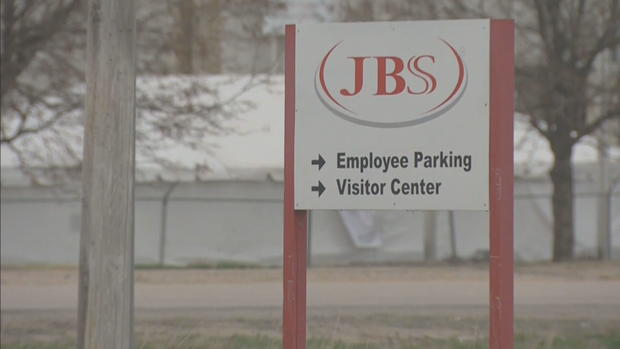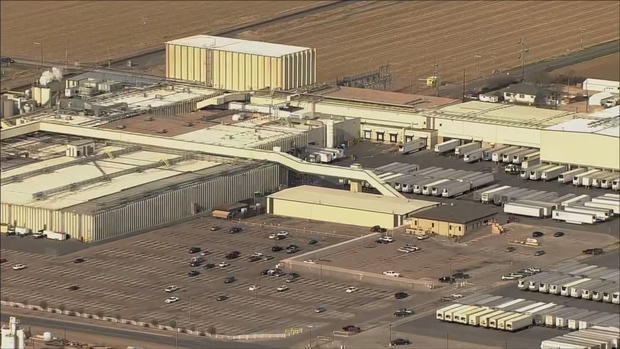Lawmakers Raise Concerns Over Safety Guidelines At Food Processing Plants
DENVER (CBS4) - Protections for workers at food processing plants continue to be a major concern for community activists and some lawmakers. Despite some meat processing plants being the center of outbreaks, they've been ordered by President Trump, through the Defense Production Act, to stay open and protect our nation's food supply.
The requirement to keep those plants open has prompted a number groups representing workers from low income and minority communities to raise alarms.
Rhonda Solis, who represents the Latino Coalition of Weld County, pointed to the JBS plant in Greeley as an example. More than 30 languages are spoken at the plant, but, reportedly, safety resources don't always reflect that. Solis said that could lead to confusion and unsafe situations for workers.
"With that many people that have different languages, there's cultural differences, and also some people that may not even read or write. You're talking about a group that could fall very easily through the cracks of not being able to do all this stuff correctly," said Solis.
Companies and lawmakers are trying to find a balance between maintaining worker safety and keeping the shelves stocked, and many are following the interim guidance provided by the Centers for Disease Control and Prevention.
On Tuesday, U.S. Reps. Diana DeGette, a Democrat who represents Colorado's 1st Congressional District, and Frank Pallone, Jr., a Democrat from New Jersey, shared their concerns about the guidelines in a letter to the director of the CDC.
"Sustaining the nation's food supply is critical. However, given the growing number of COVID-19 outbreaks in food production plants across the country, we are concerned that existing federal guidance may not be sufficient to protect the health of these vulnerable workers—many of whom are people of color or from low-income communities," DeGette and Pallone wrote.
In the letter, the representatives detail a recent CDC report that identified a number of safety challenges workers are facing, such as crowded conditions and management practices that may incentivize attendance even when ill. In an interview with CBS4, DeGette also described confusion over how companies should go about testing, in accordance with the CDC guidelines.
"The guidances are vague and they're not requirements. They're just ideas," DeGette said. "They say, well people should be tested, but they don't say how often, who should be tested, and what you should do if people test positive."
DeGette said the current CDC guidelines are unenforceable, which could cause their application to vary.
Last month, Cargill in Fort Morgan received a positive bill of health from the local health department. The department found employees' temperatures were taken before entering, they were questioned about symptoms, given shields, allowed to wear masks and spaced or put between dividers.
The JBS plant in Greeley now has many of the same precautions, but critics have said the company was too slow to act. Data made available from the Colorado Department of Public Health and Environment shows 280 JBS employees have reported positive tests and 7 have died.
"I don't think we should ever have a situation where we put people's lives at risk in order to keep meat on the shelves," DeGette said. "Having adequate testing and isolation of people who are sick and it means having safe working conditions within the plant."
For DeGette, as well as worker's advocates, there is no healthy supply chain without healthy people.
"Regulations are really important, and the workers that are doing this work, we need to make sure they are healthy and they know the proper way to do everything. Again, because this is putting food on people's tables and you're feeding this to your family," said Solis.
DeGette said these concerns aren't just related to meat plants, but all food processing plants, including facilities producing meat, cereal, baked goods, and frozen vegetables. According to the Food and Environmental Reporting Network, nearly 13,500 workers had tested positive for COVID-19, as of May 11, from around 200 meat and processed food plants.






